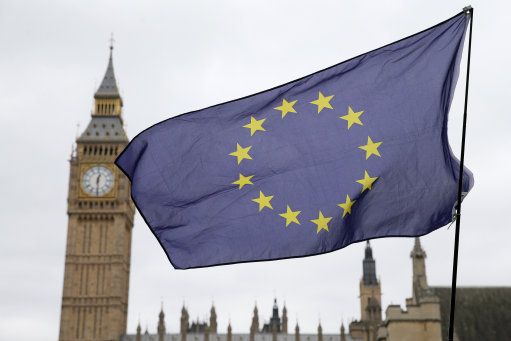The publication yesterday of the UK’s future partnership paper on UK-EU customs arrangements post-Brexit was a welcome development, providing both insight on government thinking for the future of UK-EU customs and trade, and offering the business community grounding for greater engagement. While the government’s preference for transitional customs arrangements that largely mimic the status quo is sensible, some ideas for longer-term options risk creating obstacles to the UK pursuing a genuinely independent trade policy post-Brexit.
The paper confirms that the UK will formally withdraw from the EU’s Customs Union as it leaves the EU in March 2019. It states the government’s preference for a temporary interim period of “close association” with the EU to follow, which looks largely to retain the status quo for UK-EU customs arrangements. This was expected given the recent cabinet consensus in favour of a time-limited “implementation period” to minimise disruption immediately after Brexit.
A like-for-like interim customs model is sensible—it provides the necessary breathing space for any new systems and infrastructure to be put in place to manage bilateral trade in goods in the future. It offers businesses certainty that they can continue to operate under current procedures for the near future, with changes expected only at the end of a transition stage, rather than in 2019. The EU is also likely to be open to a like-for-like model, given that it ensures least disruption for EU businesses—although it is likely to call for greater clarification on the UK’s relationship with the single market the EU’s Court of Justice during any transition.
However, a temporary replication of the status quo would impose restraints on the UK’s ability to begin concluding and implementing new free trade agreements—though the government “intends to pursue new trade negotiations with others” during this period. This may not be ideal position for the UK, but, provided it remains a time-limited arrangement, it would be worth it to ensure least disruption to trade as we leave.
The paper’s suggestions for long-term arrangement perhaps pose greater issues. On one hand, the government’s proposal for a UK-EU customs facilitation agreement to simplify as much as possible the requirement for UK-EU trade—referred to in the paper as a “highly streamline customs arrangement”—is welcome. Examples of some initiatives the government is considering as part of this agreement include implementing technology-based solutions to ensure goods are not held at borders, and mutually recognising UK and EU registered secure traders to expand access to simplified customs procedures.
Open Europe’s paper on customs,Nothing to Declare, proposed a similar model for UK-EU customs cooperation post-Brexit. There is much to recommend it—under this arrangement, the UK would achieve its ambition of no longer being bound by the EU’s tariff regime and instead conducting a genuinely independent trade policy. Implemented properly, it could offer a means to ensure no requirements for physical infrastructure at the Irish border. It also benefits from multiple international precedents—the EU already holds agreements on customs facilitation with Switzerland and Canada. Claims by the European Parliament’s Brexit spokesperson, Guy Verhofstadt, that UK proposals are a “fantasy” are therefore inaccurate and unhelpful.
On the other hand, the government’s second long-term proposal for a “new customs partnership” with the EU, based on the “mirroring” of UK and EU customs regime, should be rejected for its complexity. This unprecedented scheme would require the UK to “apply the same tariffs as the EU, and provide the same treatment for rules of origin” on goods that transit through the UK to the EU—but suggests the UK could apply its own tariffs on goods bound only for the UK. It would therefore necessitate a “robust enforcement mechanism” to ensure no undercutting or abuse of the system—something likely to be of high concern to the EU. It also risks creating a powerful force for inertia, where any deviation from the EU tariffs and trade policy would mean increased complexity for traders—therefore creating obstacles to the government’s aim to pursue a truly independent trade policy.
The government’s proposal for a UK-EU customs facilitation agreement is the better long-term option, as it best balances safeguarding barrier-free UK-EU trade with ensuring the UK is able to conduct a genuinely independent trade policy once it leaves the EU. However, as the government’s own paper recognises, customs is only one piece of the puzzle—greater detail is still required on UK-EU arrangements in regulation, supervision and arbitration in order to achieve the UK’s aim of securing “as frictionless as possible” trade between the UK and EU.
The government’s plan to "mirror" EU customs could harm Britain’s trading future
Much of yesterday’s “future partnership paper” was sensible—but some of its long-term proposals should be rejected
August 16, 2017

Photo: Xinhua/SIPA USA/PA Images











